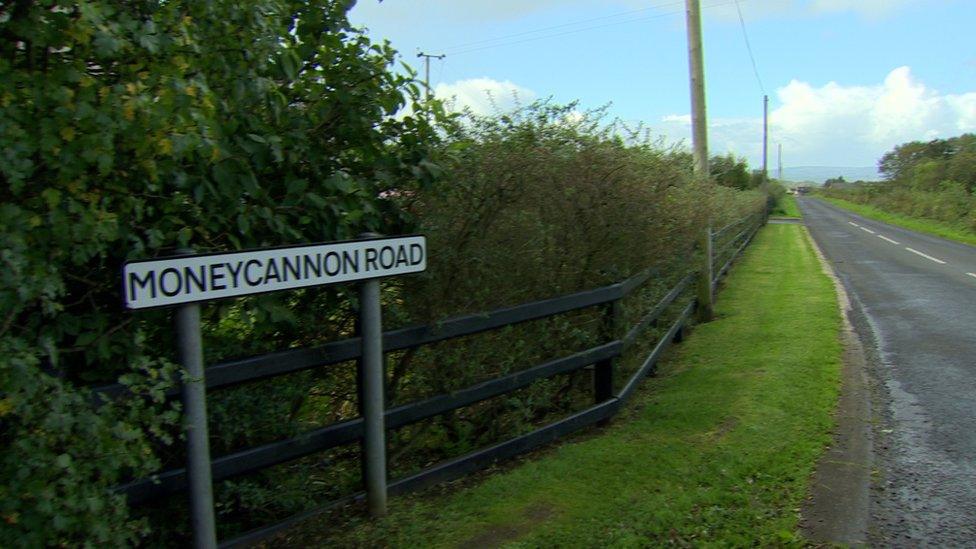Brexit 'could add fuel to Northern Ireland paramilitary fire'
- Published
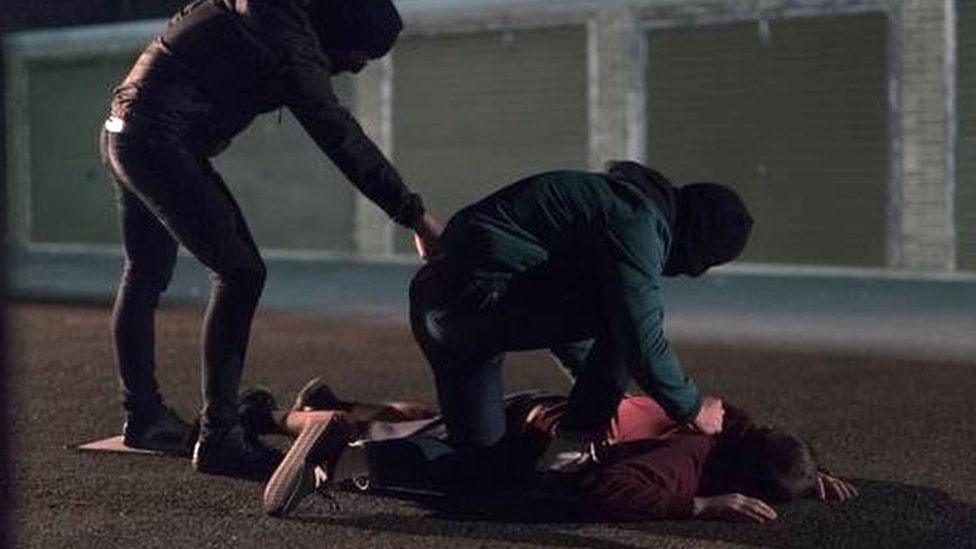
The report found there had been a rise in the number of paramilitary attacks in the last year
Brexit could "add fuel to the fire" of continued paramilitary activity in NI, rather than be a direct cause of a return to violence, a new report says.
The Independent Reporting Commission published its second report on progress towards ending paramilitary activity.
It says two issues - the vacuum created by the absence of devolution and uncertainty over Brexit - are making the task "immeasurably more difficult".
It adds there are still "thousands of sworn members" of paramilitary groups.
While the majority of these members are "dormant", the report says they "provide cover for the much smaller number of members involved in paramilitary criminality".
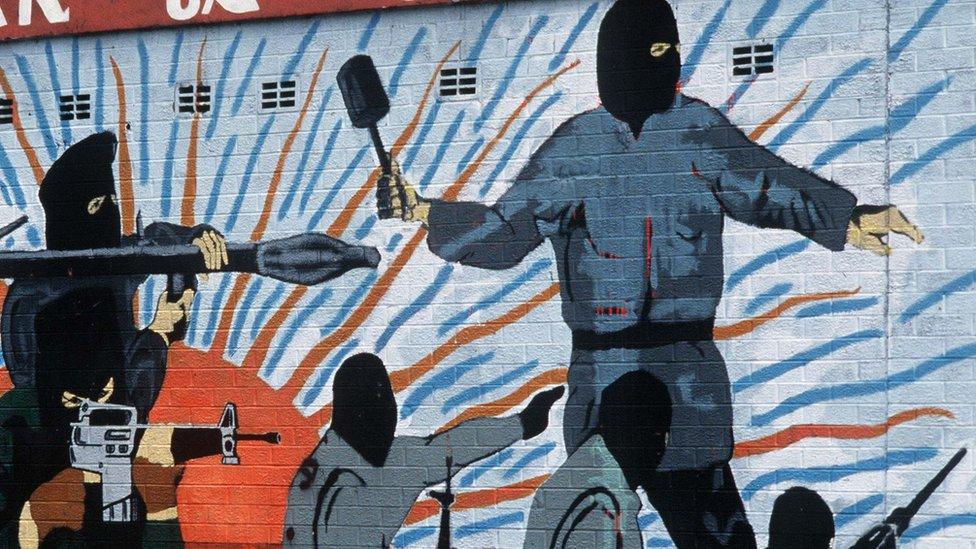
There are still thousands of sworn members of paramilitary groups in Northern Ireland
The report found there has been a downward trend in the amount of paramilitary style attacks, shootings and bombings since 2009.
Although it also stated that the number of deaths linked to paramilitary organisations and the number of paramilitary style attacks carried out between 1 October 2018 and 30 September 2019 had increased.

What is the Independent Reporting Commission?
The Independent Reporting Commission was created as part of the 2015 Fresh Start Agreement.
Its job is to report back on any progress made on ending paramilitary activity. The commission was set up jointly by the British and Irish governments.
There are four commissioners: Lawyer John McBurney and former human rights commissioner and Women's Coalition leader Monica McWilliams were nominated by the Northern Ireland Executive.
Former Irish civil servant Tim O'Connor was nominated by the government of Ireland, and the former US Special Envoy, Mitchell Reiss, was nominated by the UK government.

On the potential dangers of Brexit, the report says: "We have seen the commentary by many about the potential of Brexit to be the cause of a return of violence - including through an increase in paramilitary activity.
"We understand why people make that claim, but the issues surrounding paramilitarism, and why it continues to exist, long pre-date Brexit."
It adds: "The real issue about the dangers for peace in Northern Ireland, therefore, is not that Brexit itself could be the direct cause of a renewal of violence, but rather that it has the potential to add fuel to the fire of continued paramilitarism."
'A stark reality of life'
The report says that both republican and loyalist paramilitaries are involved in attacks.
It found that loyalist paramilitaries were responsible for more assaults and republican paramilitaries were involved in more shootings.
There are 88 organised crime groups in Northern Ireland, 22 of which have paramilitary links, it says.
The report calls for the "full suite of powers" available to law enforcement to be used "to their fullest extent".
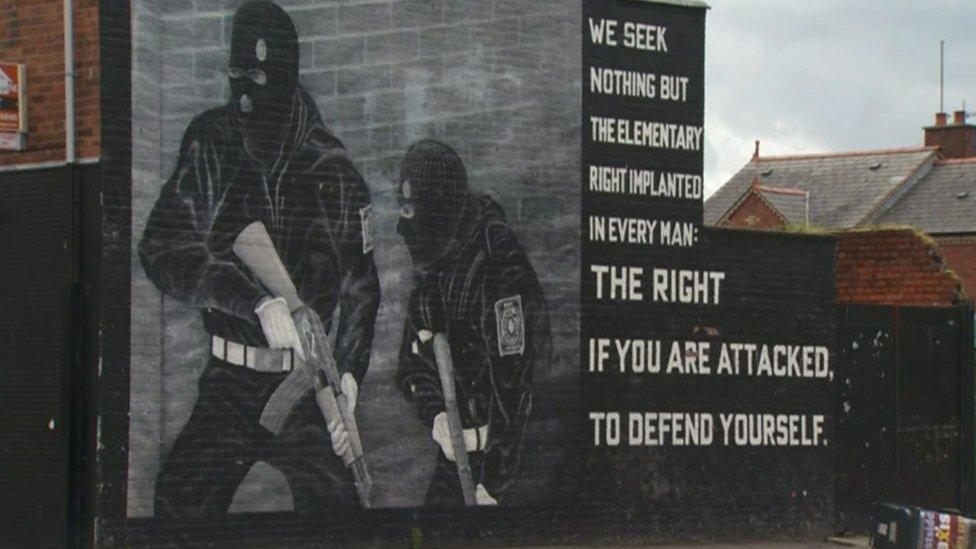
Loyalist paramilitary attacks more often take the form of assaults rather than shootings
It says that serious consideration should be given to establishing an agency that focuses solely on civil recovery of the proceeds of crime in Northern Ireland, similar to the Criminal Assets Bureau in Dublin and the Civil Recovery Unit in Scotland.
The report also says that similar legislation to that covering organised crime in Scotland should be considered for Northern Ireland.
It makes it an an offence to become involved in serious organised crime, to direct it and to fail to report it, while also making connections to serious organised crime an aggravating factor in a criminal prosecution.
The report says that paramilitarism remains "a stark reality of life" in Northern Ireland and a major part of the unfinished business of the Peace Process.
It says that while encouragement can be taken from efforts currently being made to bring it to an end, "there are no grounds for complacency".
The commissioners recommend that tackling paramilitarism be made a new dedicated outcome in Northern Ireland's Programme for Government.
- Published28 September 2018
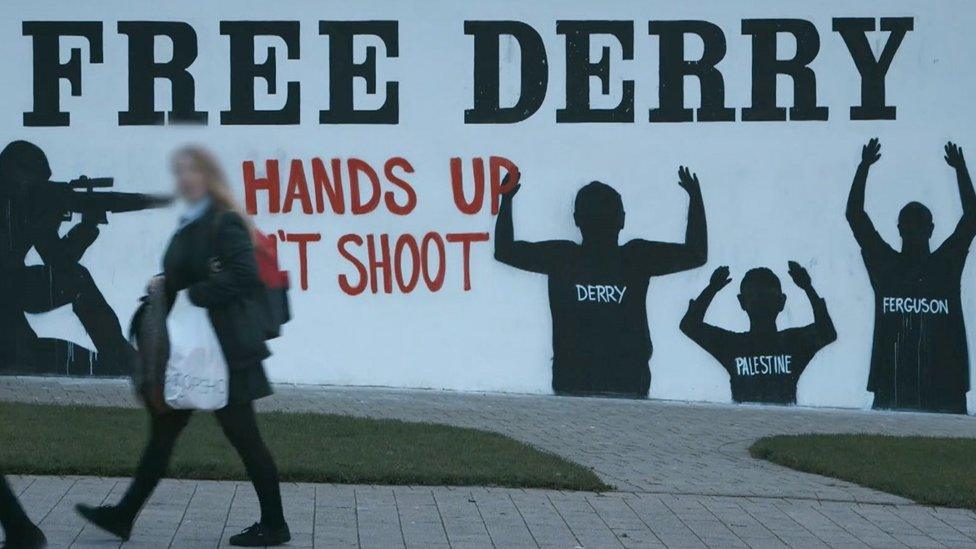
- Published2 October 2018
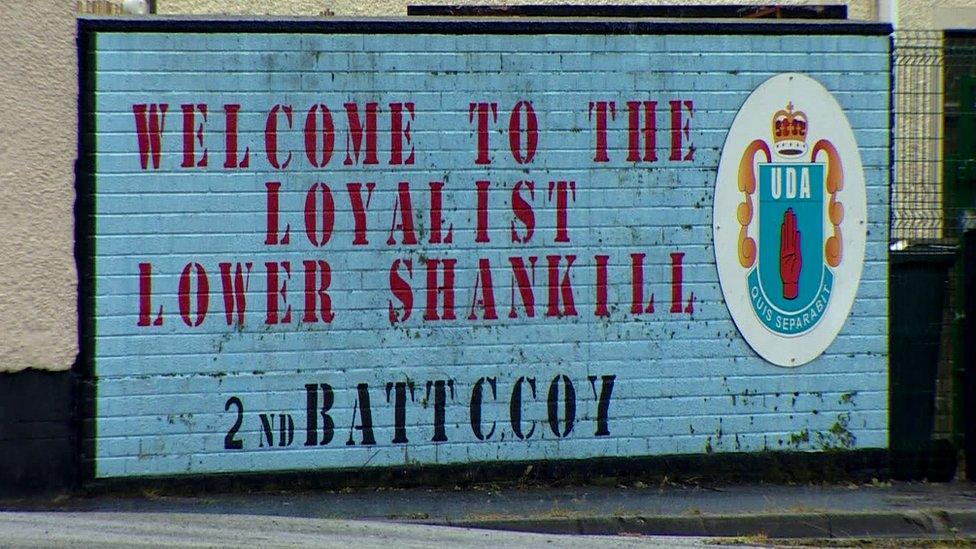
- Published23 September 2018
